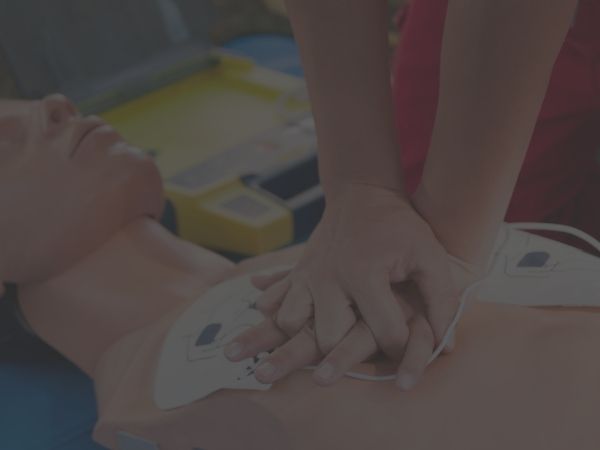Your cart is currently empty!
A Brief Guide to Staying Energetic and Healthy While Working Long Shifts
NURSES FACE CHALLENGES unlike workers in other industries. Due to their basic job description, caring for others, nurses may forgo managing their own care. Their responsibilities to a health care organization and people in need of health care further contribute to the problem. By some accounts, the prevalence of mental health problems among nurses could be as high as 84 percent, but this alludes to a greater problem.
Nurses are overwhelmed and make up a major portion of the underserved mental health community. Unfortunately, fear of retaliation from an employer or loss of credentials have turned this health concern into a taboo topic. Nurses can help reduce this trend by learning how to manage stress and mental health properly, which can also improve energy levels and overall job satisfaction, and nurses need to know how to accomplish such a feat.
Nursing and Mental Health Statistics
Take a moment to think about the following questions:
- Have you known any nurse with a diagnosis of depression or anxiety?
- Do you know a nurse that drinks regularly or in excess?
- Do you work with nurses who smoke tobacco?
- Would you trust a nurse with anxiety or depression to give your mother the right medication?
The first three questions allude to nurses with higher levels of mental stress, but the last question evokes fear. It makes you question whether nurses with mental health issues can be trusted, and if not, how can you stop them from hurting someone?
Unfortunately, this is the exact chain of reasoning that has led nurses away from seeking care for their own mental health issues. They could face criticism from coworkers, employers and even their respective state boards. However, the prevalence of mental health issues among nurses is much higher than in the general population, reports Scrubs magazine, including the following statistics:
- Workplace Stress – Up to 83.9 percent of nurses in critical care areas report experiencing high levels of workplace stress on a regular basis. In addition, only 10.7 percent report experiencing moderate levels of stress. While making life-and-death decisions for others is inherently stressful, the extreme amount of stress may lead to the development of anxiety or depression.
- Depersonalization – This describes the “dream-like” feeling experienced when working long hours and feeling like you are just going through the motions. Up to 60 percent of nurses experience depersonalization, a major precursor to anxiety.
- Anxiety – The prevalence of anxiety is approximately 30-percent higher among nurses than the general population.
- Post-Traumatic Stress Disorder (PTSD) – More than 24 percent of nurses exhibit signs or symptoms of PTSD, including increased anxiety, poor or low mood, intense emotional reactions and inability to cope with extreme events.
- Depression – This is among the most common mental illnesses in the U.S., but nurses are 300-percent more likely to suffer from depression that the general population. In addition, nurses with depression may experience unyielding fear, hopelessness and inability to respond to emergencies.
Why Do Nurses Have a Higher Risk of Mental Health Problems?
Nurses and health care professionals are at an increased risk of mental health problems for multiple reasons. Nurses may work in high-energy environments, and the demand from nurses is increasing. In other words, the nursing shortage, which is only predicted to worsen, reports Mark Huffman of Consumer Affairs, will add to the stress nurses experience. Meanwhile, the risk of contracting a health problem, such as Bloodborne Pathogens, can increase stress too.
Other factors impacting nurses’ stress include legal obligations and ramifications if an error occurs during a shift, and workplace violence, such as a violent patient or family member, can lead to PTSD, anxiety, depression and other mental health issues. Even the simplest of interactions, an angry patient who wants an extra snack, may seem minimal and not stress-inducing. But, every negative interaction adds to the mounting level of stress, and soon, nurses begin to experience depersonalization.
What Causes Nurses to Forgo Self-Care?
The public sees nurses as the frontline staff in the health care industry, so why would professionals avoid getting help for mental health problems? The answer goes back to the stigma attached to mental illness.
In nursing, having a mental health problem can lead to additional financial and legal obligations to report to mental health issues to the governing state boards of nursing. In severe cases, this could lead to a loss of licensure.
But, the state board is not out to revoke your nursing license, unless you knowingly withhold information and do not get the treatment and care needed to fulfill your duties in a safe, effective manner.
Additional reasons nurses may forgo self-care for mental health problems may revolve around finances, like needing to work additional hours to pay off student debt, or they may feel an obligation to pick up extra hours. According to the Becker’s Hospital Review, as many as 47 percent of RNs and 54 percent of LPNs work overtime regularly. This creates added stress and may result in sleep deprivation, another contributing factor in worsening mental health. So, how can nurses work to manage such stress and improve their mental health?
How Can Nurses Manage Stress and Improve Their Mental Health?
There are 12 steps to managing stress, and each step is geared specifically to helping nurses manage mental stress proactively. But, every step lacks value unless nurses understand the risk. Even those who feel fine may be on the verge of a mental illness.
For instance, ask yourself the following questions:
- Have you felt overly tired lately, sluggish or like you did not get enough sleep?
- Did you think twice about signing up for that overtime shift?
- Are you thinking of changing employers?
- How many more days do you have until your next day off?
If you answered “yes” to any question, you are already at high risk. If the last question made your head hurt, then it is definitely time for a break. It is time to use these steps.
1. Manage Schedules Proactively
You have an obligation to come to work when scheduled, but more employers are starting to consider the impact of overtime and unrealistic expectations have on health care professionals. As a nurse, it is important to manage your schedule proactively. Although it is tempting to take an annual pay-out of your hours, take your paid-time-off (PTO) hours. In other words, TAKE A VACATION!
Also, do not pick up extra work that is unreasonable. If overtime is mandatory, aim for working one extra day per week. If your employer objects, advise him or her of its potential impact on your ability to provide. He or she will understand. Basically, remember the need for sleep and a well-balanced life.
2. Eat a Balanced Diet
Getting enough rest is only part of the battle. You need to eat a balanced diet, not just one from the hospital cafeteria. Vary your diet with fruits, vegetables, snacks and other healthy foods. While it is okay to indulge in sweets and fried foods on occasion, do not make them a staple in your diet. This will help prevent weight gain and improve your energy stores. As a result, you will be able to sleep better and feel well-rested and energetic when at work. Depending on your current physical state of health, you may need to take medications to prevent stomach problems, like GERD, if you eat acidic or spicy foods at work. However, do not take any prolonged antacids or other medications without consulting your doctor, not just your coworkers.
3. Get Therapy or Counseling When Appropriate
One of the best ways to get help for managing stress is by talking with others about it. However, as a nurse, you cannot disclose protected health information (PHI) of those in your care unless required to ensure continuity of care. Fortunately, you can simply describe what made you feel overwhelmed, and leave out the names and diagnoses. A counselor or therapist does not need to know that information to help you, nor do your friends or family members. More importantly, seeing a counselor or therapist is not going to turn into the revocation of your nursing license. Remember HIPAA? It applies to you as well, and unless you are experiencing mental health problems that could result in harm to yourself or another person, your therapist is not likely to report you to anyone.
4. Create a Journal
For nurses with an intense fear of seeing a counselor, journaling may be a suitable alternative. Journaling provides a way to escape the struggles of life, and if you are concerned about someone reading it, burn it afterward. This ensures your writing is destroyed, and it is the action of getting your emotions out of your mind that helps you feel better, not keeping it forever.
5. Start a Hobby
Other ways to manage stress in nursing might include taking up a new hobby. You may consider volunteering in your community, learning how to play a new sport or planting a garden. Hobby examples are endless, and their only requirements are enjoying. You may even consider learning how to grow grapes and make wine, if legal in your area. However, this particular hobby is not a justification for drinking in excess in managing stress.
6. Get Back in the Sun
The health benefits of sunlight are well documented. In fact, light therapy, comparable to spending time in the sun, is an actual treatment for people experiencing depression and stress during the winter, reports Healthline. So, what does that have to do with nursing?
Individuals working evening and night shifts may start to feel like they have not seen the sun in a while. In some areas of the country, working the night shift means going to work at night and getting off at night. So, spending some extra time in the sunlight on your days off can help boost your mood and combat the negative effects of stress at work.
7. Exercise Regularly, or Engage in Some Form of Physical Activity
As a nurse, you may get plenty of walking, but other care settings may require endless hours working on a computer or sitting one-on-one with a person receiving care. Thus, nurses need to get regular exercise, and if they are overweight or obese, the impact of exercise and physical activity on mood cannot be overstated.
To find out if you are included in this group, the National Heart, Lung and Blood Institute offers a Body Mass Index calculator online for free.
8. Take Advantage of Company Organizations That Improve Mental Health Among Staff Members
Your employer may also offer services to help employees experiencing mental illness or added levels of stress. These services can range from concierge services to on-site counseling and supportive therapies.
9. Participate in or Attend Company-Sponsored Events, Nurse Appreciation Week, Picnics, Recognition Ceremonies
Your company may also sponsor recognition events for health care professionals.
For example, Nurse Appreciation Week or company picnics and award ceremonies can be great ways to manage stress too. These events trigger the release of mood-stimulating hormones, including serotonin and endorphins, similar to exercise, which counteracts the negative effects of stress.
Even learning opportunities that take place outside of your regular work environment, like completing Basic Life Support (BLS) or Advanced Cardiac Life Support (ACLS), give your mind and body an opportunity to recover and rest. Depending on your employer, you may also qualify for additional compensation for completing training outside of regular working hours.
10. Local Nursing Boards May Offer Services and Resources for Managing Stress in Nursing
Your state’s Board of Nursing may offer additional support services and resources for managing stress and mental health issues. Since these services may vary depending on location and practice, the National Council of State Boards of Nursing (NCSBN) is best resource for contacting your state board and determining what resources may be available.
11. Avoid Negative Coping Behaviors, Like Drinking
Another key to reducing stress is eliminating negative coping behaviors, like using tobacco or alcohol. While studies differ in the health benefits versus consequences of alcohol consumption, the key is to not make alcohol use a habit. In other words, having a glass of wine on your day off may be fine, but it should not be a requirement to feeling better.
12. Spend Time With Family and Friends OUTSIDE OF WORK!
A final way to reduce stress of work is by seeing other people. This is about your personal relationships. You need to spend time with family, friends and others outside of work. In addition, try to avoid talking solely about work if spending time with coworkers outside of work. In other words, leave work at work!
Never Be Afraid to Say, “No, I Need a Break.”
There is one more thing you must do to reduce mental stress and improve your mental health. You need to be willing and able to say, “No.” There are going to be plenty of times when your supervisor really wants you to come in, and there will be many opportunities for overtime in your future. But, you have the right to refuse extra work, unless it is in your contract. You have the right to take your PTO hours. You have the right to a safe, fulfilling career.
While staying energetic and keeping your mental health in check are integral to your success as a nurse, it is also essential you keep your skills and education updated as well. Check the expiration dates of your CPR, BLS, ACLS and Bloodborne Pathogens’ training courses now. If you keep on top of your credentials, education and attitude, you can overcome stress and be a nursing success story.










Leave a Reply